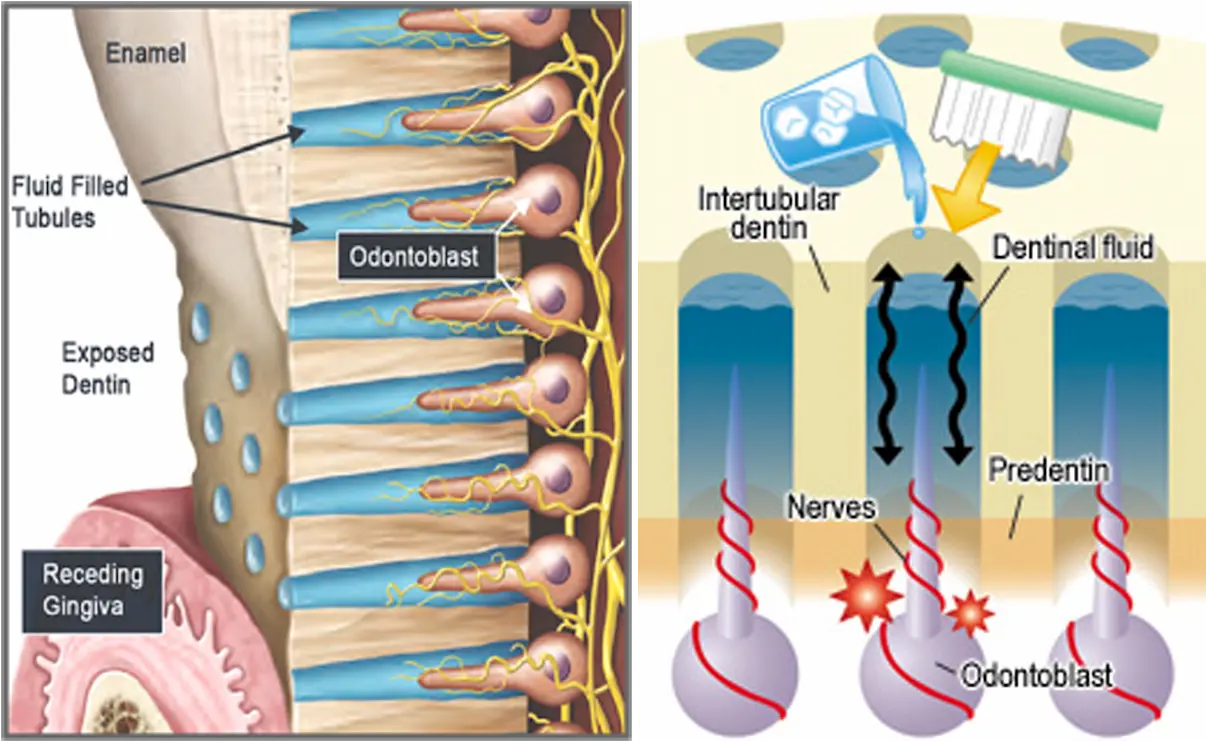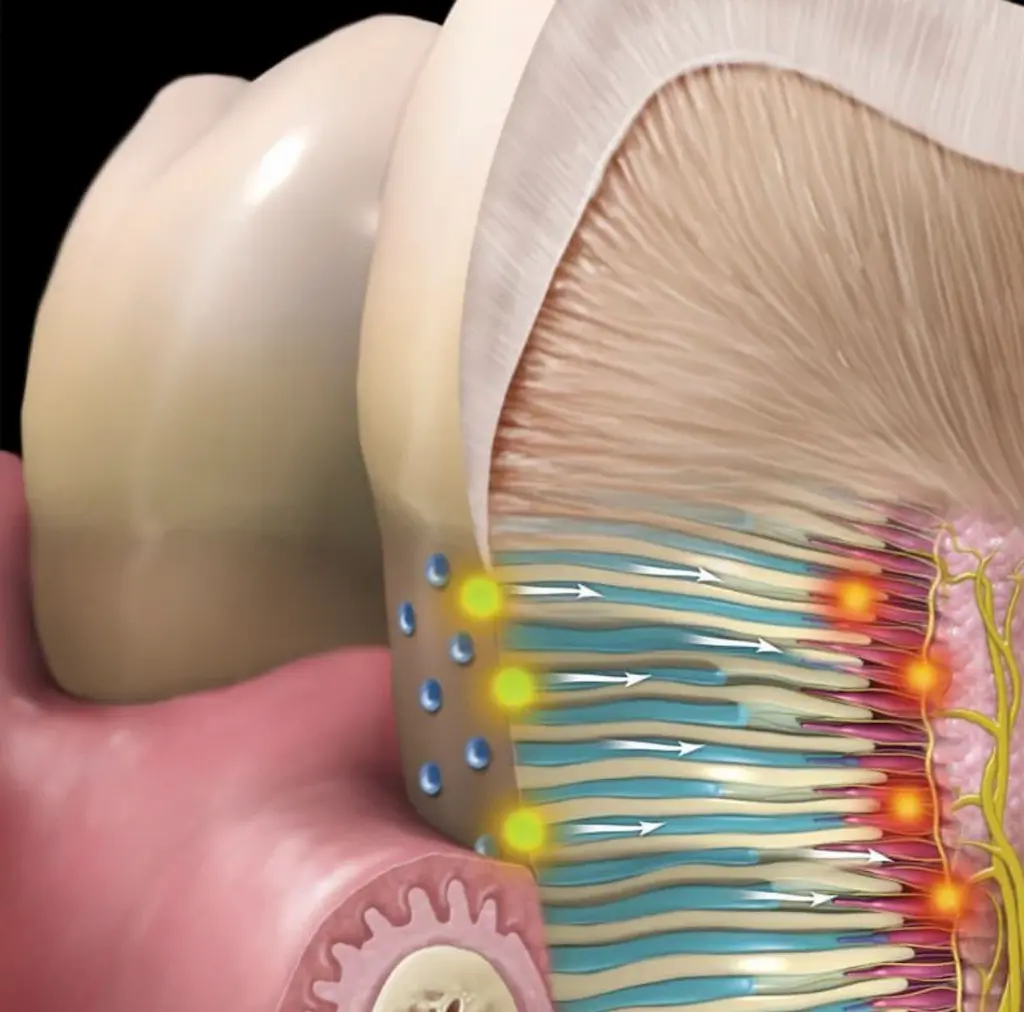Submit Request ...
-
Forums
What Are Dentin Tubules?

Have you heard of the term dentin tubules? Well, now you have. Dentin tubules are a vital part of your teeth. As you may know, the teeth are made up of tissue layers, and each one serves a unique function. The dentin tubules are located in the dentin, one of the layers below the enamel surface. The role of dentin tubules is to help you feel sensations in your teeth. That's also why they're often blamed for hypersensitivity in people's teeth.
As you read on, we'll look into what dentin tubules are and their function, how they should flow, and how to manage hypersensitivity caused by them.
What Are Dentin Tubules?
Dentin tubules are small, hollow microscopic channels that travel from the inside of the tooth (where the pulp is) out through the dentin, ending right beneath the enamel. Dentin is the middle layer of the tooth, forming the bulk of the tooth.
The inside of your tooth is fed by blood vessels, but the outer layers of your teeth don't contain blood vessels or nerves. Dentinal tubules do the blood vessels' work in the harder layers of your teeth, carrying the pulp chamber's nutrients and fluids to your dentin layer.

The Flow of Dentin Tubules
It's essential that the fluid flow in the dentin tubules continues and moves outward. If the dentin tubules' flow stops or moves in a different direction, bacteria and other contaminants can get inside your teeth. Plus, it prevents the dentin from getting the nutrition it needs, making it hard for the teeth to fight off decay caused by the bacteria. Factors that reverse or disrupt the flow include:
1. High intake of sugar or carbs
2. Inactivity
3. Chronic stress
4. Pharmaceutical drug use
5. Malnutrition
Dental Hypersensitivity
When dentin loses its protective covering of enamel, the dentin tubules transmit hot and cold sensations or acidic or sticky foods to stimulate the nerves inside the tooth, causing sensitivity and discomfort. Furthermore, an increased flow in the dentin tubules tends to result in greater sensitivity.
If you're experiencing tooth sensitivity, it's essential to connect with your dental professional to make sure the pain or sensation is not something more serious. If it's tooth sensitivity alone, they may recommend a desensitizing toothpaste to help ease your discomfort. It may take several applications to start working, but it's a great option to help relieve your discomfort.

It's essential to follow proper daily care by brushing twice a day and cleaning between your teeth daily to protect your dentin tubules and reduce your hypersensitivity risk. Protecting your tubules is important because, unlike your bones, they don't regenerate. The good news is some studies are looking into how dentists can mimic the process and help people heal.
Now you know what dentin tubules are all about. These tubes carry a big responsibility in making sure that the harder layers of your teeth get the nutrients they need. They must flow correctly to avoid bacteria and other contaminants from getting inside your teeth. It's also crucial that their protective covering stays intact to prevent hypersensitivity. So make sure to keep up with your daily care and avoid a high sugar diet. If you have concerns about sensitivity in your teeth, contact your dentist right away. It'll bring you one step closer to a pain-free smile.
The articles are reviewed by Dr. Moein Taghvi, a gum surgeon and periodontist. This information is for educational purposes only. This content is not intended to be a substitute for professional medical advice, diagnosis or treatment. Always seek advice from your dentist, doctor or other qualified health care provider.
Please let us know what you think!